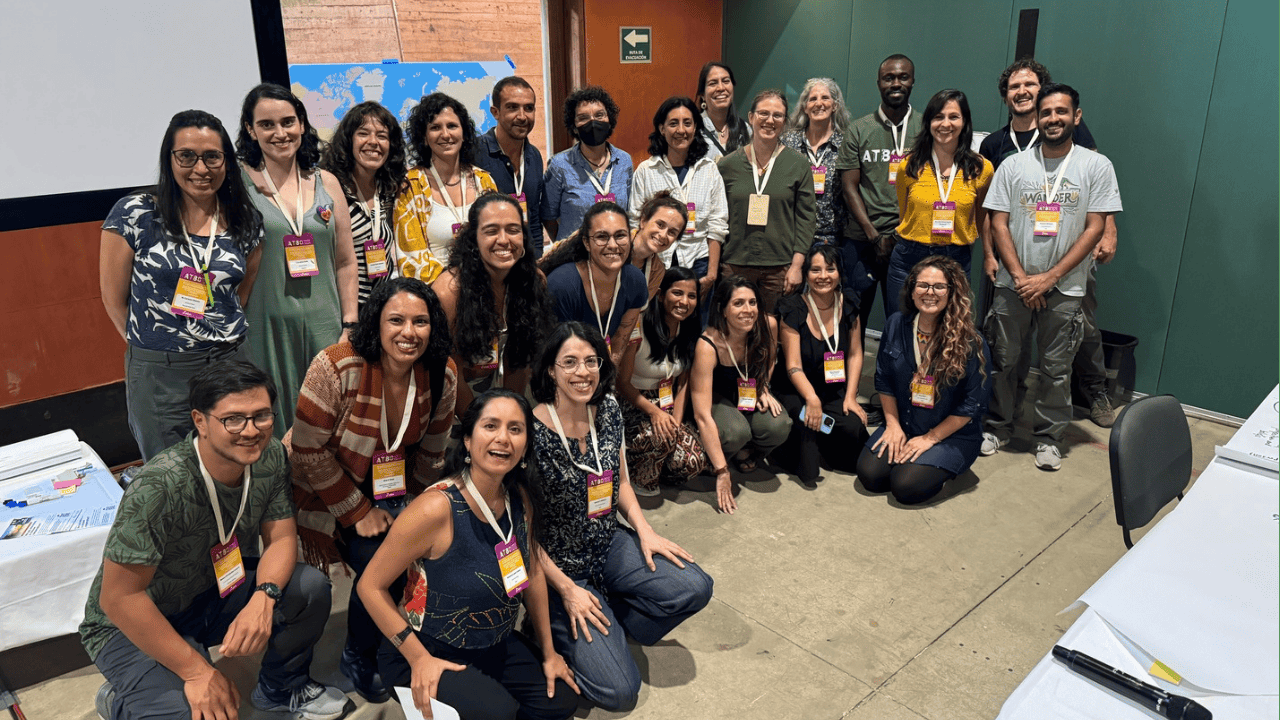The workshop fostered open dialogue on trust, leadership, and resilience in transboundary conservation networks.
On July 2, during the 2025 Annual Meeting ofthe Association for Tropical Biology and Conservation (ATBC), the Tropical Conservation and Development (TCD) Program at the University of Florida, in collaboration with Nina Attias (Wildlife Conservation Network) and Sabina Ribeiro (Federal University of Acre) hosted a workshop titled What Makes a Network Work? Keys for Success in Cross-Border Conservation Networks. The event brought together over 30 participants involved in conservation efforts across tropical regions, creating space for meaningful reflection on what makes collaborative networks thrive or struggle.
The workshop was inspired by the Power of Connections in the Amazon project, coordinated by TCD. Dr. Vanessa Luna, postdoctoral associate at the University of Florida and one of the workshop organizers, explained how the idea came about: “As part of this project, we were discussing a lot about the need to foster meaningful connections among different actors that promote conservation in the Amazon. And then we had the opportunity to come to the ATBC conference, and we thought with the executive team of the project, why don’t we organize a workshop to discuss networks, knowing that a lot of people that come to this conference are already part of different conservation networks?”
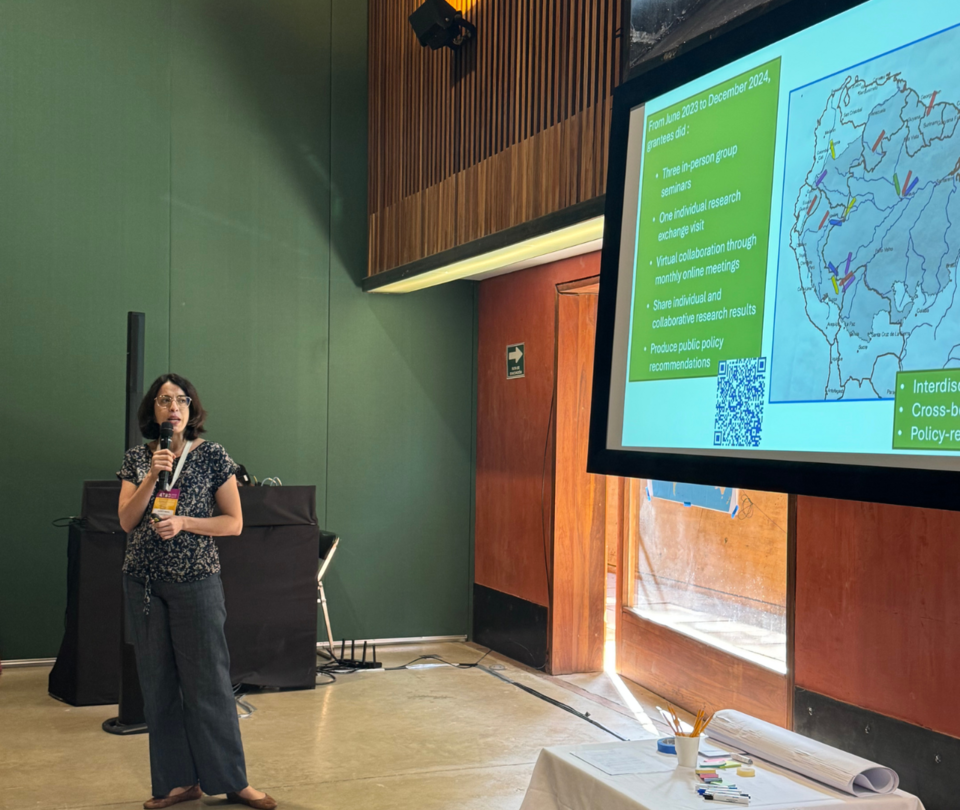
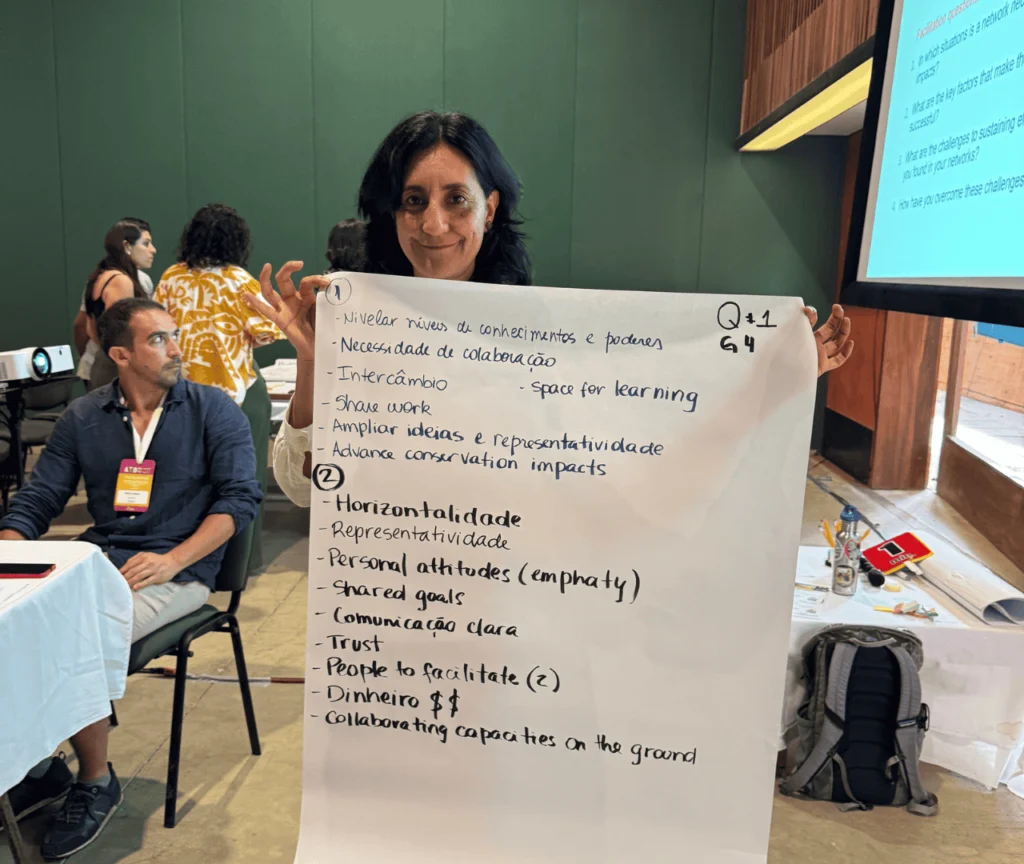
Although the original idea was to focus on Amazon-based networks, the scope was expanded to tropical conservation networks more broadly, in recognition of the global diversity present at ATBC. Dr. Luna added, “We organized it in a way where people came together to first introduce themselves, say where they’re from and what networks they’re part of, and then discuss why their networks existed in the first place, what were the main challenges and successes, and how they overcame these challenges. So that’s what most of the discussion in the workshop was about — people reflecting in groups about these issues. And now that we’re done, we’re super happy to see all the different amazing discussions that emerged. We now have a list of different strategies that we will compile and then share with the participants.”
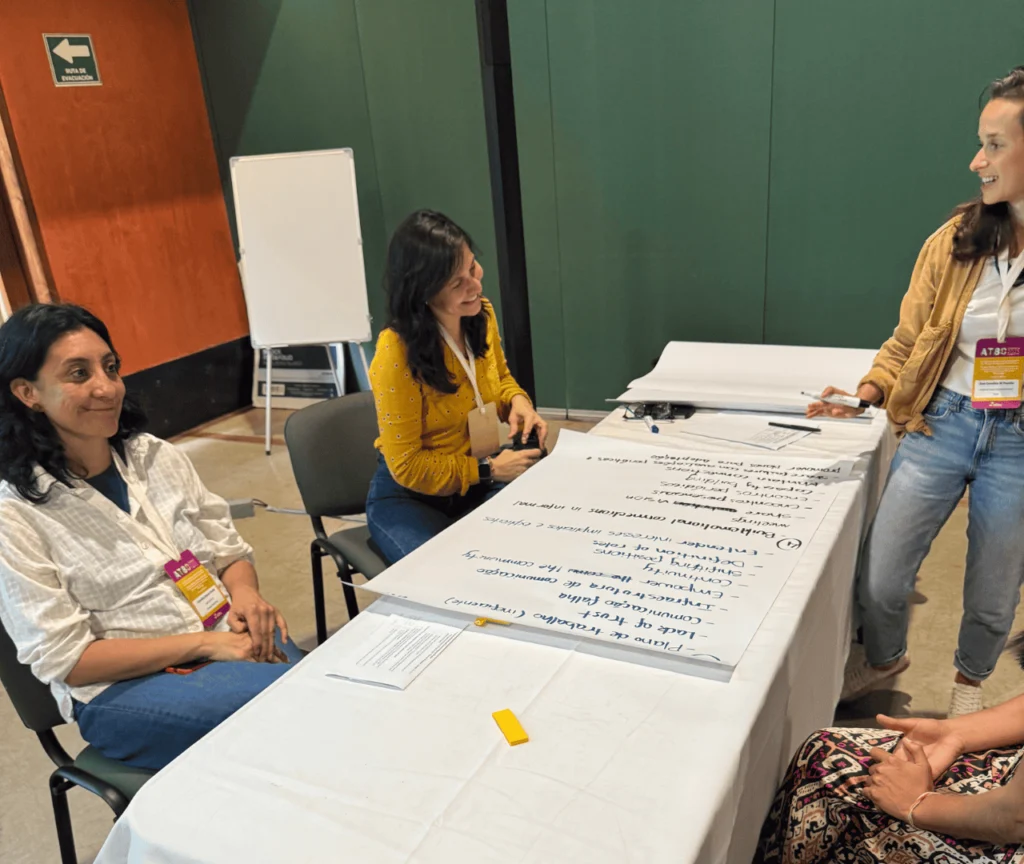
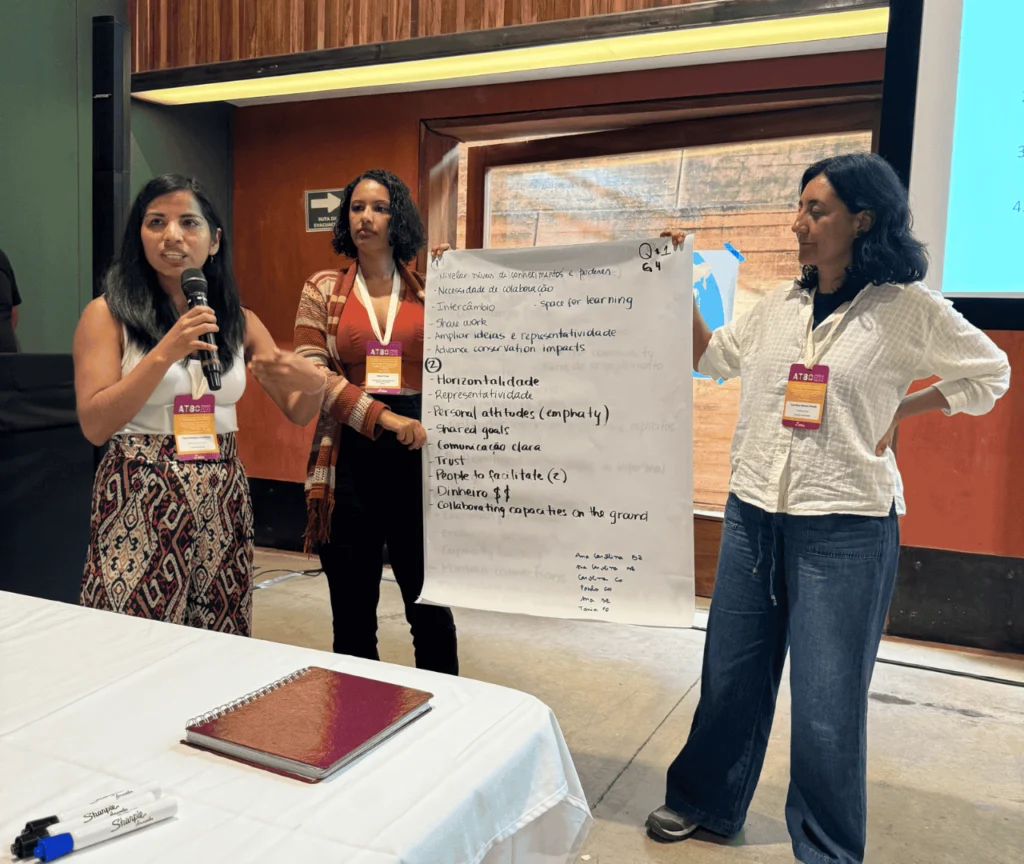
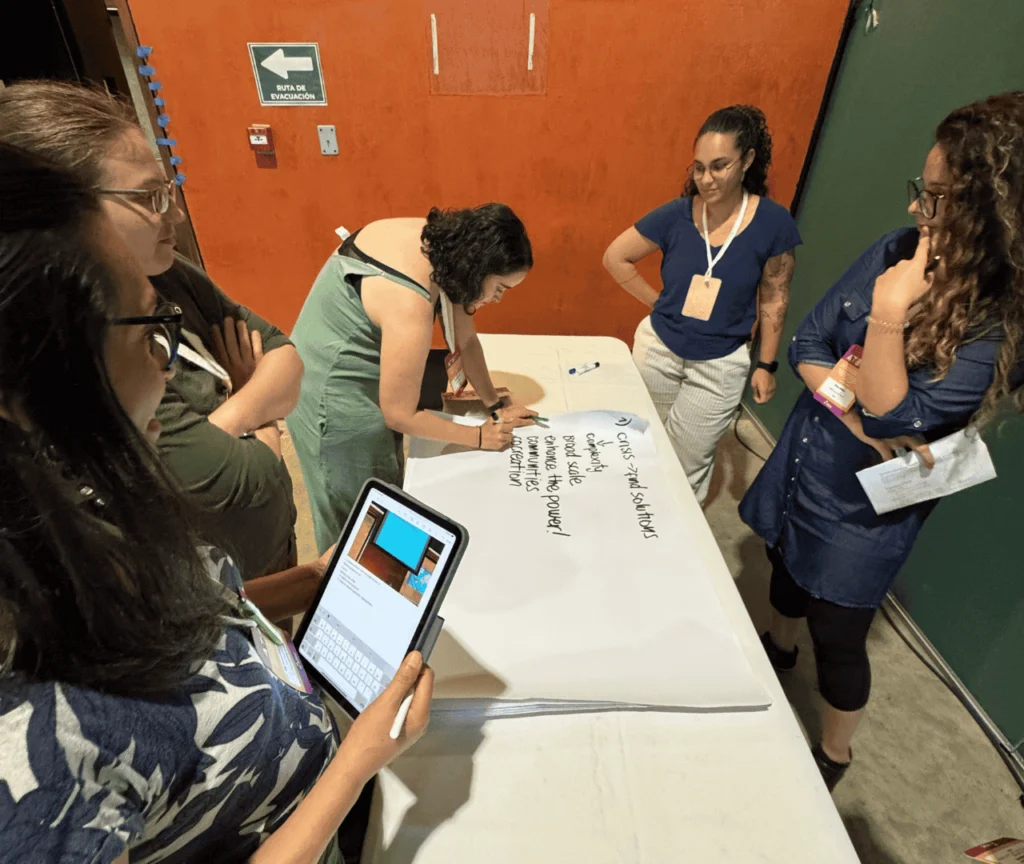
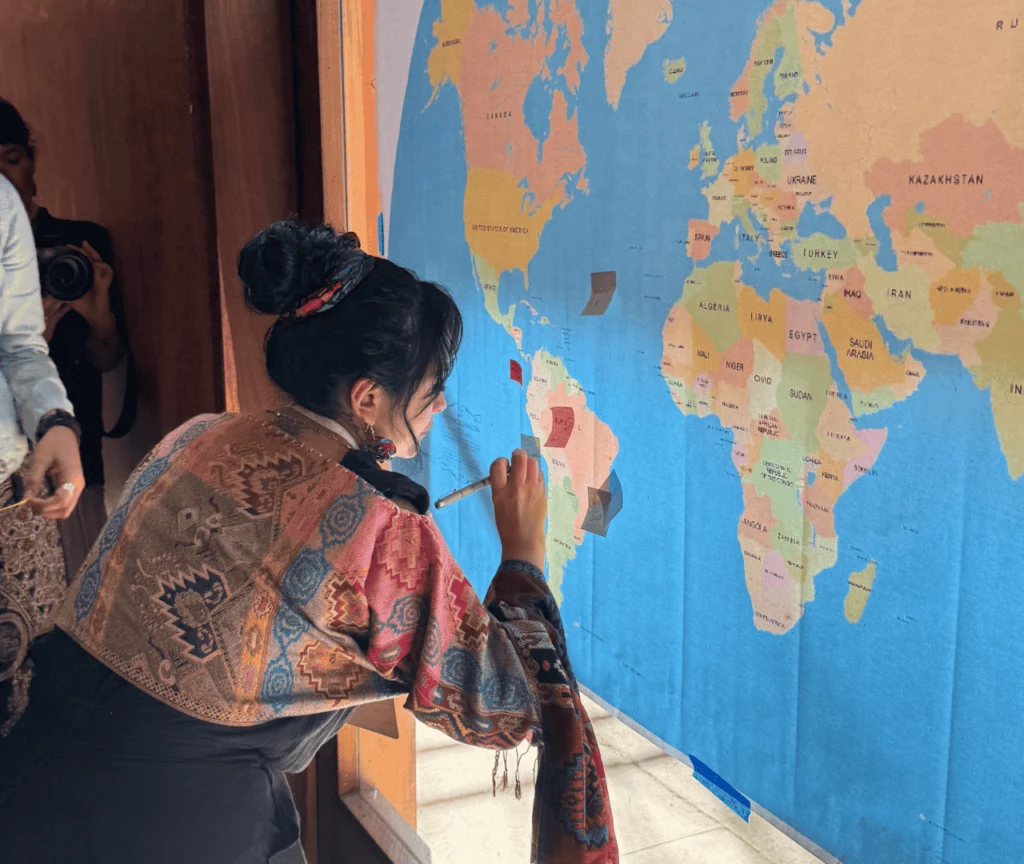
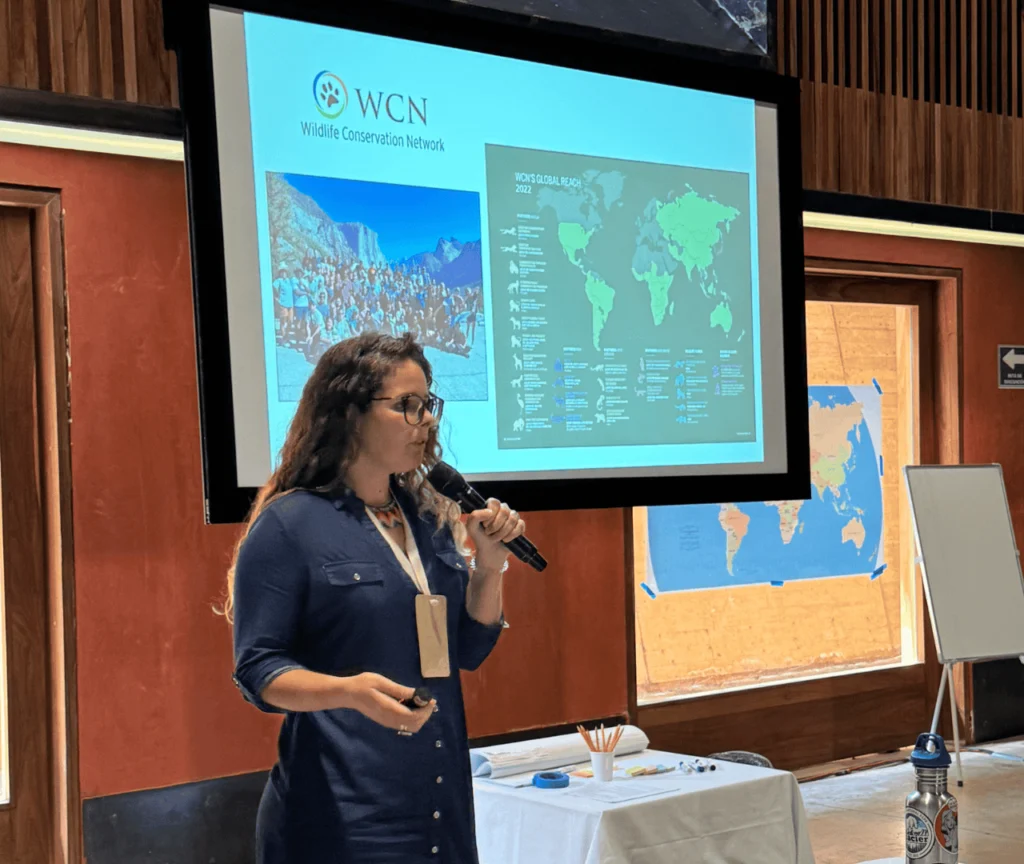
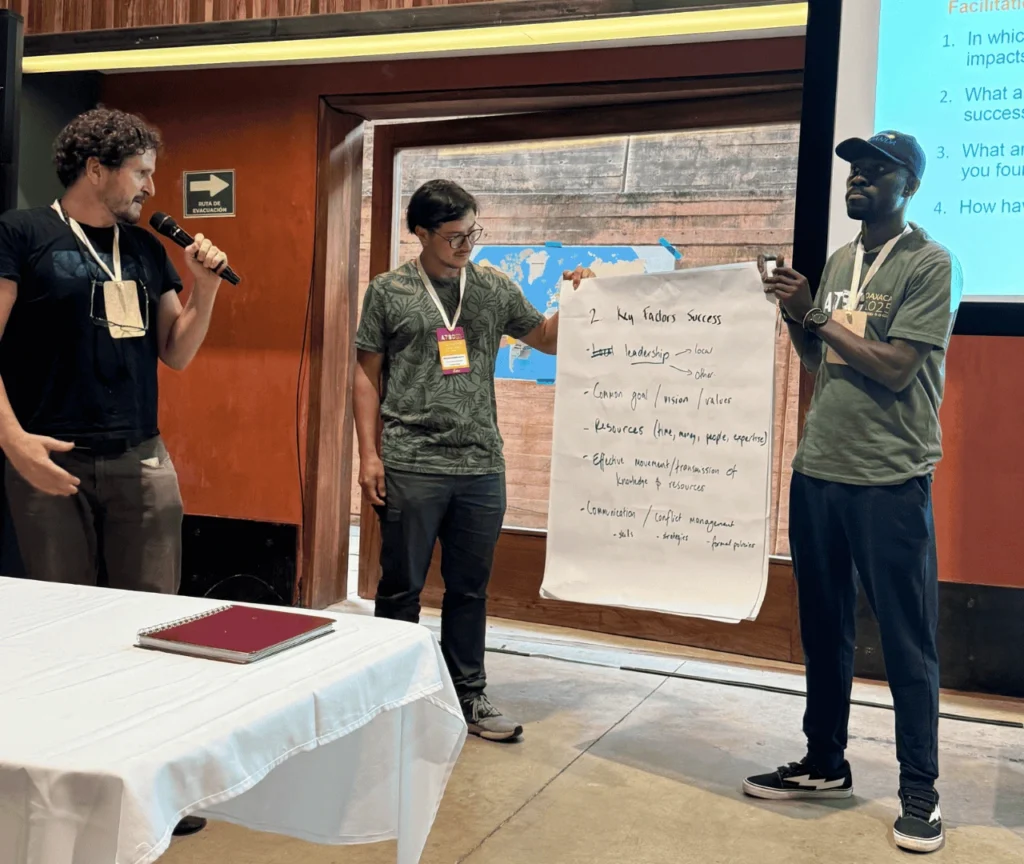
Dr. Bette Loiselle, Director of the TCD Program, emphasized how the workshop reflected the values and methods of the program itself. “I’ve been involved in a number of different networks, including our new Power of Connections Project, which is trying to help find solutions to the Amazon by bringing voices of the Amazon — diverse voices — together to share experiences, successes and failures, and how they’ve adapted and innovated to come to more positive outcomes for communities, for Indigenous groups, and for biocultural conservation. With this ATBC workshop, I was really hoping to see people that represented a diversity of networks across the tropics, and I think we did a really good job in attracting that diversity. What most excited me was to see the diversity of ways people have implemented strategies to solve challenges — to make networks effective, to lift everybody up in the network, to find ways to sustain it, to lead it, and to build trust among people in the network.”
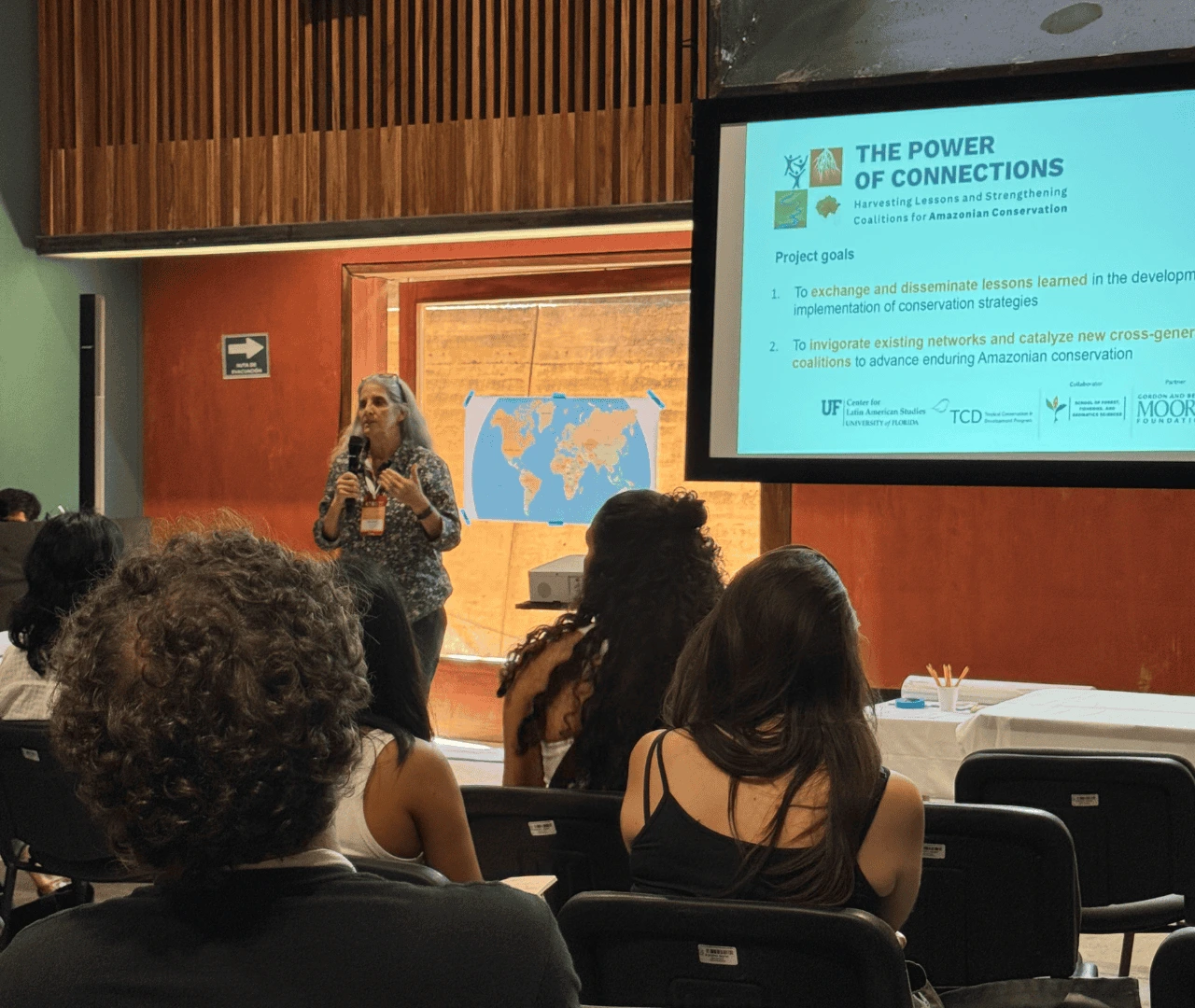
Dr. Nina Attias, Manager of the Amazonia Program at the Rising Wildlife Leaders initiative, a partnership between Wildlife Conservation Network, the Gordon and Betty Moore Foundation, and the Global Environmental Facility (GEF), shared that she entered the space with curiosity and left inspired. “My expectations were a mystery, but I hoped we would really have a diversity of networks and perspectives, and I’m happy because we saw that. Even in a relatively small group, just 30 people, we had a great representation of different networks; more than a dozen, for sure. I really liked seeing participants at different stages of their careers, all engaged in networks, engaged with the topic, wanting to do better, looking for support, looking for a real channel of conversation. I’m super happy with the result.”
For Dr. Sabina Ribeiro, the workshop was “an opportunity to reflect on the roles of conservation networks, lessons learned and the challenges faced by them, especially the continuity”. She presented the Program Fulbright Amazonia, in which she was a scholar of the first cohort. According to Dr. Ribeiro, “the program was launched in 2022 and resulted in recommended policies to protect and improve lives and livelihoods in rural and Indigenous communities of the Amazon, but had its second edition suspended in 2025 due to political issues in the US”.
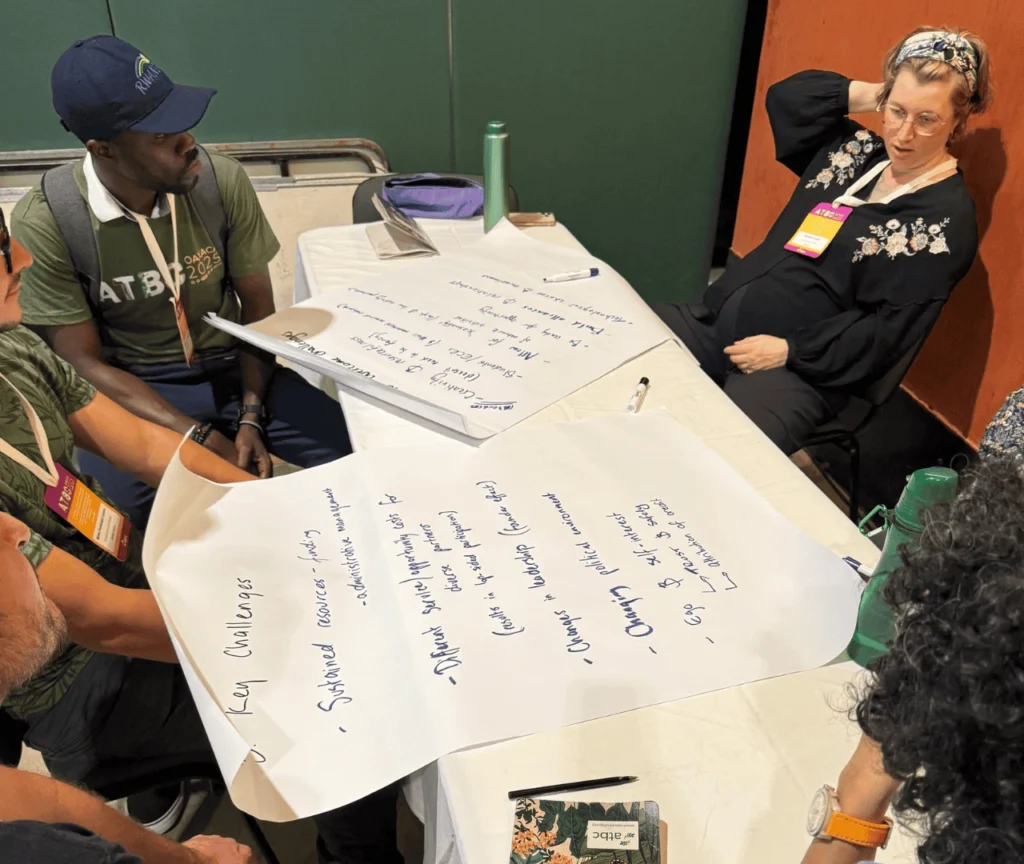
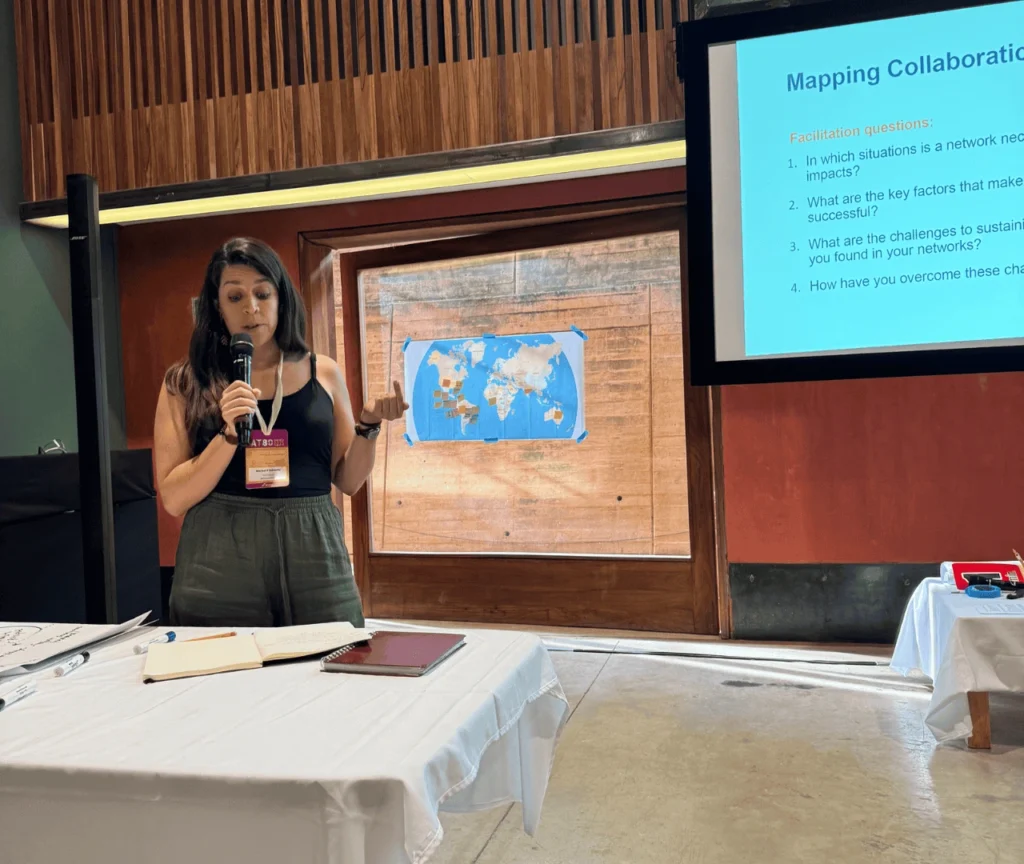
The workshop also resonated on a more personal level for many participants. Dr. José Antonio Sierra Huelsz, based at the Universidad de Guadalajara and active in multiple networks such as People and Plants International and the Mexican chapter of the International Society of Tropical Foresters, said, “Basically, I didn’t come with any expectations, so I’m happy with whatever I get. To me, it was an interesting experience. Just to reflect first by myself and then to be able to discuss the challenges and opportunities for making a network work. That was just positive for me overall. What I got was cool and interesting enough for me.”
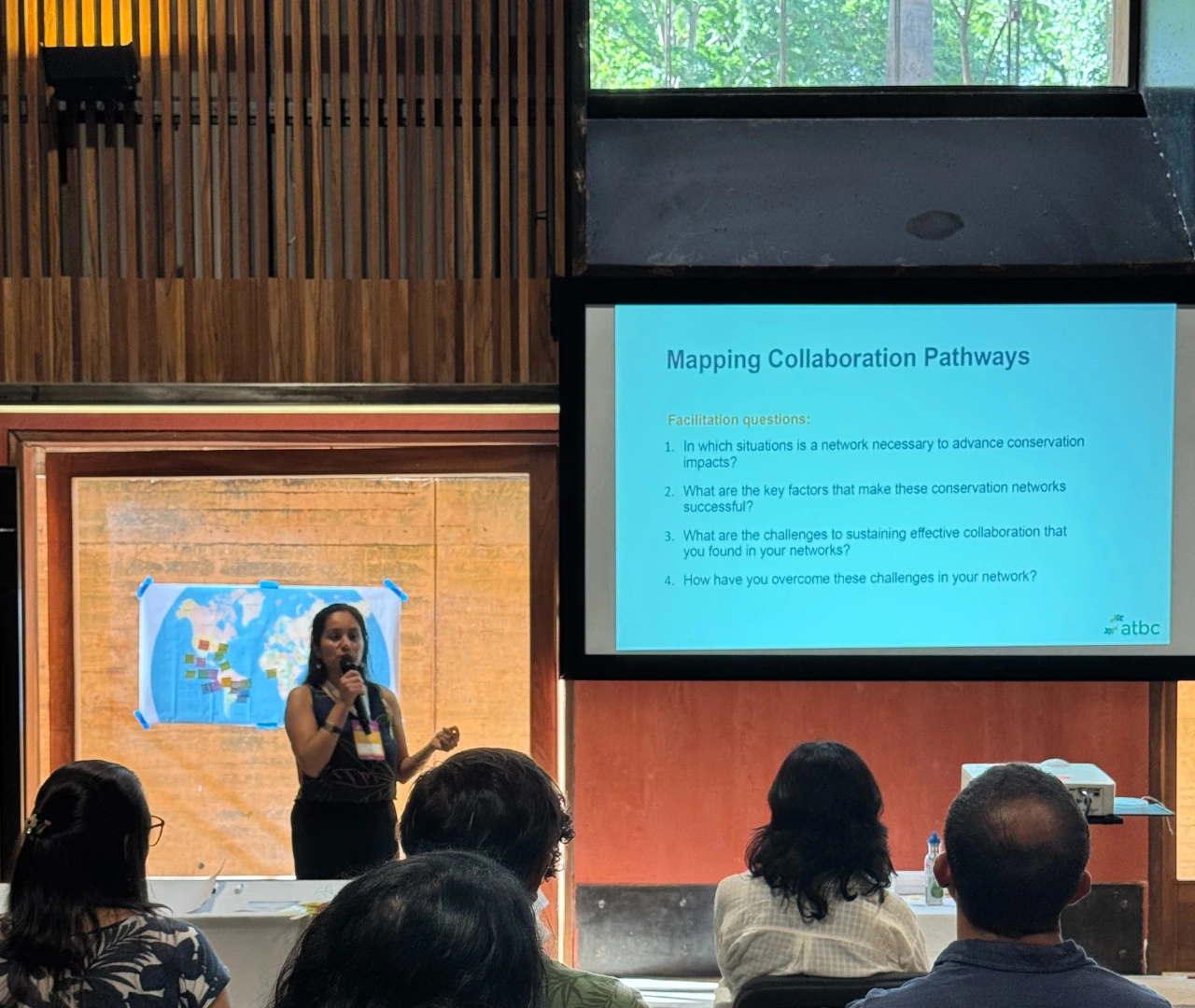
As ATBC 2025 concluded on July 4, this workshop stood out as a moment of genuine connection, peer learning, and shared purpose. The organizing team will now work to compile and distribute the strategies and reflections gathered, contributing to ongoing efforts to make conservation networks more inclusive, resilient, and effective. As Dr. Loiselle concluded, “This workshop fits into how TCD sees itself, how we like to work — the ways of working, the ways of knowing, and the ways of learning together.”
About the Tropical Conservation and Development Program at the University of Florida
The Tropical Conservation and Development (TCD) Program’s mission is to bridge theory and practice to advance biodiversity conservation, sustainable resource use, and human well-being in the tropics and beyond. TCD is a research and training program of the Center for Latin American Studies, with 10 core faculty and approximately 100 faculty affiliates across campus. TCD has a longstanding history of collaboration with partner organizations in the Amazon and of supporting networks of conservation practitioners dedicated to improving outcomes for people and nature.
About the Moore Foundation
Gordon and Betty Moore established the foundation to create positive outcomes for future generations. The Andes-Amazon Initiative (AAI) in the Gordon and Betty Moore Foundation was launched in 2003 to ensure the long-term ecological integrity and climatic function of the Amazon basin. Since its inception, the AAI has helped conserve over 980 million acres—23 times the size of Florida. The Moore Foundation works with and supports NGOs, Indigenous organizations, universities, research institutions, governmental agencies, and the private sector. Its current goal is to ensure that at least 70% of Amazon forest and freshwater ecosystems are effectively conserved and managed.
Visit Moore.org and follow @MooreFound.

